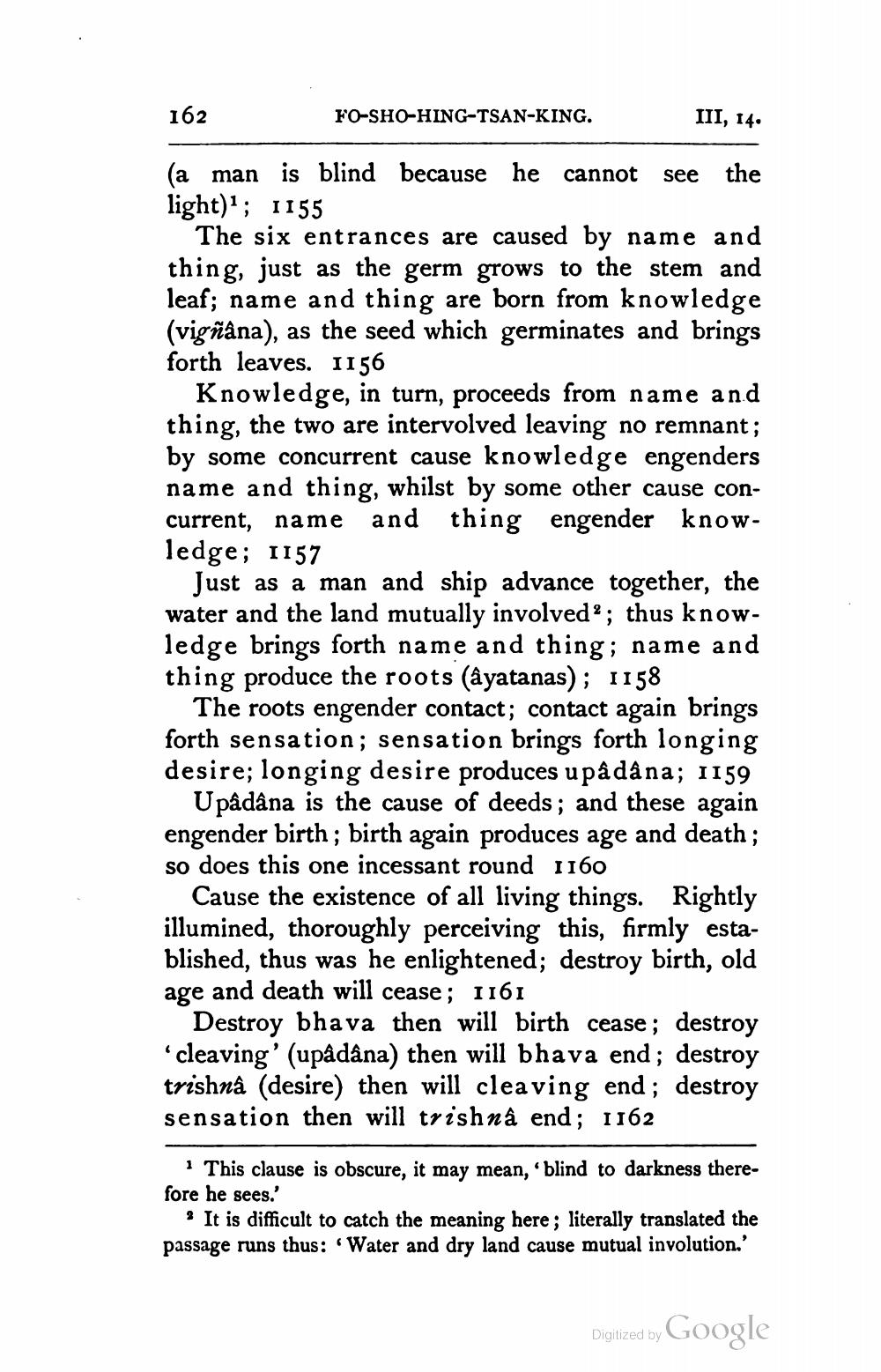________________
162
FO-SHO-HING-TSAN-KING.
III, 14.
(a man is blind because he cannot see the light)"; 1155
The six entrances are caused by name and thing, just as the germ grows to the stem and leaf; name and thing are born from knowledge (vigñana), as the seed which germinates and brings forth leaves. 1156
Knowledge, in turn, proceeds from name and thing, the two are intervolved leaving no remnant; by some concurrent cause knowledge engenders name and thing, whilst by some other cause concurrent, name and thing engender knowledge; 1157
Just as a man and ship advance together, the water and the land mutually involved? ; thus knowledge brings forth name and thing; name and thing produce the roots (âyatanas); 1158
The roots engender contact; contact again brings forth sensation; sensation brings forth longing desire; longing desire produces upâdâna; 1159
Upâdâna is the cause of deeds; and these again engender birth; birth again produces age and death; so does this one incessant round 1160
Cause the existence of all living things. Rightly illumined, thoroughly perceiving this, firmly established, thus was he enlightened; destroy birth, old age and death will cease; 1161
Destroy bhava then will birth cease ; destroy cleaving' (upâdâna) then will bhava end; destroy trishna (desire) then will cleaving end ; destroy sensation then will trishna end; 1162
This clause is obscure, it may mean, 'blind to darkness therefore he sees.'
* It is difficult to catch the meaning here; literally translated the passage runs thus: Water and dry land cause mutual involution.'
Digitized by Google




